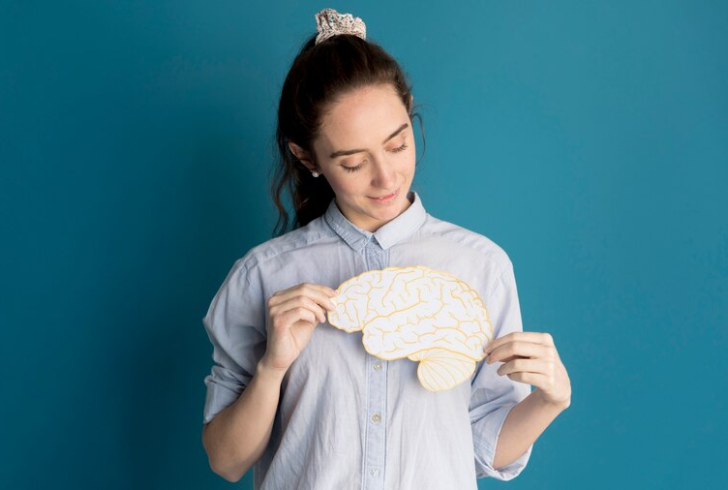Cognitive exercise plays a vital role in keeping the brain sharp and improving memory. Just as regular physical activity strengthens the body, engaging in activities that stimulate the brain enhances cognitive performance. Research shows that even moderate amounts of physical and mental exercise can help boost brain function, reduce cognitive decline, and potentially lower the risk of dementia.
In addition to long-term benefits, cognitive exercise and physical activity can also provide short-term boosts to memory and overall brain function. Studies indicate that these improvements can last anywhere from a few hours to up to 24 hours after activity. As cognitive abilities naturally decline with age, these boosts can make a significant difference in maintaining independence and an active lifestyle.
Link Between Physical Activity and Cognitive Function
Staying physically active has proven benefits for cognitive performance. Whether through structured exercise like jogging or by being active throughout the day, individuals tend to perform better on cognitive tests following physical activity. Researchers have identified this connection as particularly important for middle-aged and older adults, as maintaining cognitive function becomes more critical with age.
A recent study explored the effects of moderate-to-vigorous physical activity on memory. Participants who engaged in activities like brisk walking or cycling performed significantly better on memory tests the following day. This finding suggests that physical activity may have longer-lasting cognitive benefits than previously thought.

Image by Drazen Zigic on freepik | Physical activity helps improve brain function and memory.
Key Findings - Physical Activity and Sleep
The study involved 76 participants aged 50-83, all of whom wore wrist-worn activity trackers for eight days. The devices measured their daily physical activity levels, time spent sedentary, and sleep patterns. The participants also completed cognitive tests each day to assess memory and brain function.
Some important findings included:
1. Participants who spent more time in moderate-to-vigorous physical activity showed better performance on memory tests the next day.
2. Increased time spent in deep, restorative sleep, also known as slow-wave sleep, further improved memory scores.
3. Sedentary behavior was associated with lower scores in working memory tests.
While the improvements were modest, the study highlighted how regular physical activity and quality sleep positively impact cognitive function.
Why Cognitive Exercise Matters
The brain thrives on stimulation. Cognitive exercises such as problem-solving, memory games, puzzles, and learning new skills challenge the brain and help maintain its health. Combining physical activity with cognitive exercise creates an even stronger impact.
Exercise increases blood flow to the brain and stimulates the release of chemicals that enhance cognitive function. These effects can improve memory, focus, and problem-solving abilities in the short term. However, more long-lasting changes—particularly those related to memory—can persist for up to 24 hours or longer.
This extended cognitive benefit could result from exercise-induced processes like the release of growth factors and neurochemical changes.
Simple Ways to Include Cognitive Exercise in Daily Life
Incorporating cognitive exercise into a routine doesn’t require complicated strategies. A few simple practices can help maintain brain health and improve memory over time:
1. Engage in Brain Games: Activities like puzzles, crosswords, and Sudoku stimulate brain function.
2. Learn New Skills: Trying a new hobby, such as playing an instrument or learning a language, challenges the brain.
3. Stay Physically Active: Combine exercise with cognitive tasks, such as walking while listening to an educational podcast.
4. Prioritize Quality Sleep: Ensure deep, restorative sleep to support cognitive recovery and memory consolidation.
5. Read Regularly: Reading books, articles or engaging with educational content keeps the brain engaged and active.
By including these activities in daily life, individuals can support cognitive health and experience both short-term and long-term benefits.

Image by freepik | Regular exercise supports brain health and memory.
The Role of Sleep in Brain Function
Sleep plays a critical role in brain health. Slow-wave sleep, in particular, allows the brain to repair and consolidate memories. Combining quality sleep with cognitive and physical exercise creates an optimal environment for brain function. Research highlights that those who experience deeper sleep tend to perform better on cognitive tasks.
To improve sleep quality, aim for consistent sleep patterns, avoid late-night screen time and engage in physical activity during the day. These habits can lead to better slow-wave sleep, further enhancing cognitive performance.
Physical Activity and Its Lasting Effects on Memory
Regular physical activity continues to show promising results for brain health. Beyond immediate benefits, exercise stimulates processes that could improve memory function for 24-48 hours. This longer-lasting effect offers hope for individuals managing cognitive decline or neurodegenerative diseases like dementia.
While additional research is needed, these findings emphasize the importance of staying active and engaging the brain through cognitive exercises.
Active Lifestyles and Brain Health
Maintaining an active lifestyle becomes increasingly important with age. Regular physical activity paired with cognitive exercises supports overall brain function, reduces the risk of cognitive decline, and improves quality of life.
By combining activities like brisk walking, problem-solving tasks, and quality sleep, individuals can strengthen both their bodies and minds. Small, consistent efforts yield lasting benefits, helping people stay sharp, independent, and healthy for longer.








